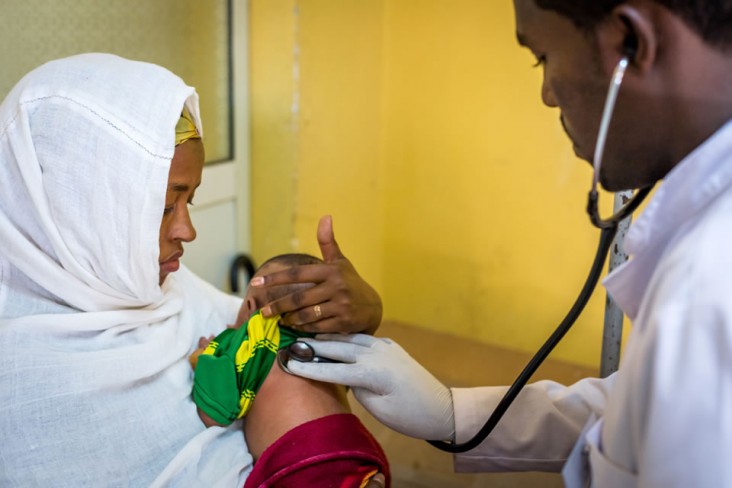- What We Do
- Agriculture and Food Security
- Democracy, Human Rights and Governance
- Economic Growth and Trade
- Education
- Environment and Global Climate Change
- Gender Equality and Women's Empowerment
- Global Health
- Humanitarian Assistance
- Transformation at USAID
- Water and Sanitation
- Working in Crises and Conflict
- U.S. Global Development Lab
Speeches Shim

At USAID, we strive to close the gap between those with and those without access to high-quality essential health care. Our goal is to support countries to strengthen service delivery, governance, finance, health workforce, information, essential medicines and supply structures to be better positioned to continuously monitor and improve processes so that all people experience high-quality and equitable health care.
For over 25 years, USAID has been a global leader in adapting modern quality improvement methods used in the United States and United Kingdom to lower- and middle-income countries that have limited resources. In partnership with country governments, civil society and the private sector, we help countries improve the effectiveness, efficiency, client-centeredness, safety, accessibility and equity of health care provided. To do this, we use a range of methods and tools to improve quality of care in more than 40 countries around the globe.
These methods include but are not limited to process improvement and redesign; collaborative improvement; licensing and regulation; and supportive supervision. Our approach helps countries measure, monitor and increase compliance with evidence-based health standards and guidelines, and improve the quality of essential health care. This includes delivery of safe, effective, quality-assured medicines that meet international standards.
In addition to training and supervision activities, the Agency supports countries to create a ‘culture of improvement’ within their health systems. We know that improvements are better sustained in health systems that have an environment that is conducive to continuous improvement. Because health care is a part of a bigger system, it is important to engage multiple sectors that impact health, such as private and civil society sectors, and policy makers and community leaders.
More on USAID’s Work on Quality Improvement:
USAID’s Applying Science to Improve Systems Project
Maternal and Child Survival Program
Promoting the Quality Medicines Program
In Zika’s Wake: Strengthening the Skills of Health Workers in Honduras
Salzburg Global Seminar (Session 565) on ‘Better Health Care: how do we learn about improvement?
Improving Quality of Care in Low- and Middle- Income Countries: Workshop Summary

Comment
Make a general inquiry or suggest an improvement.